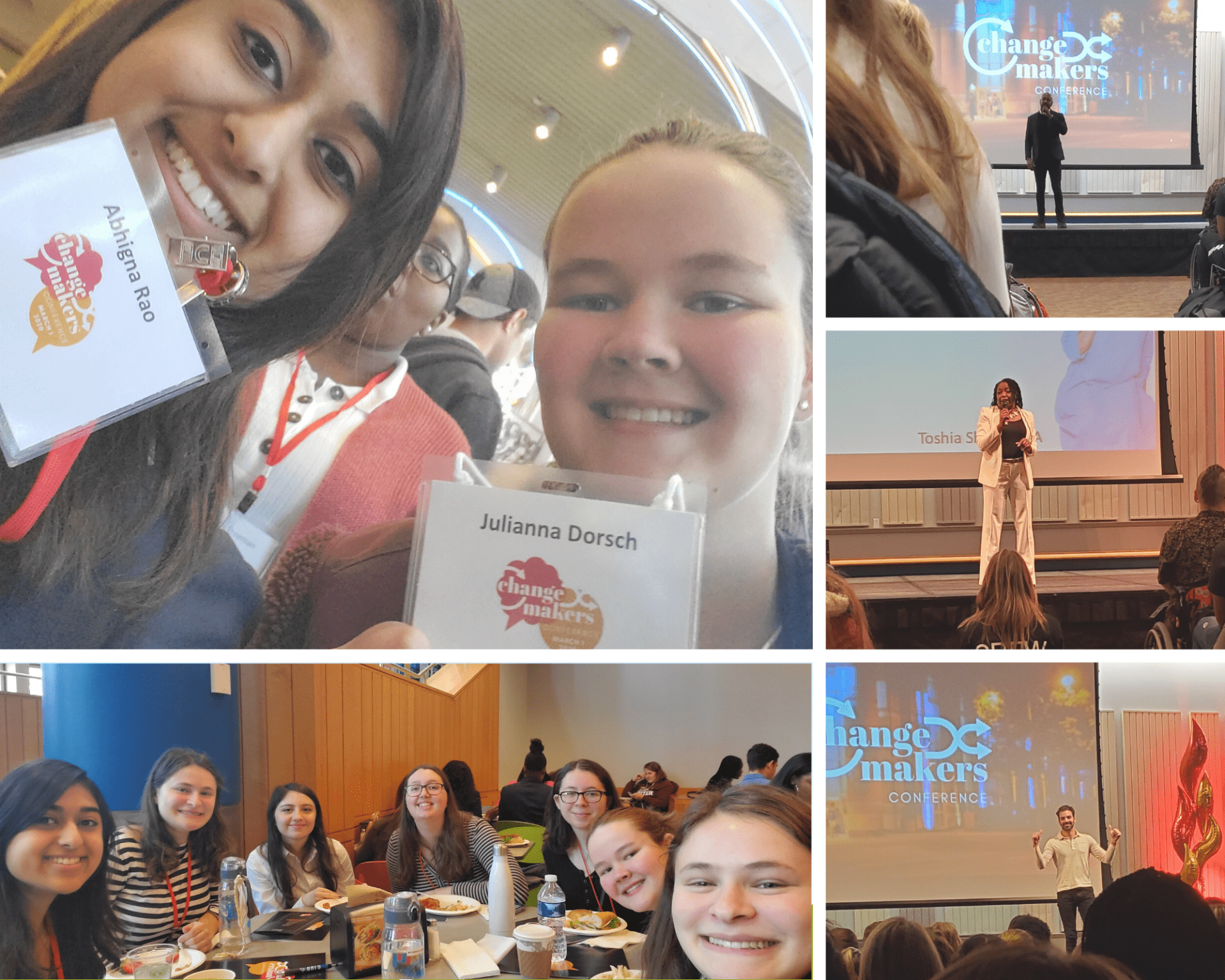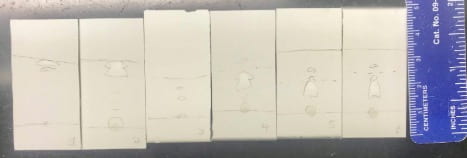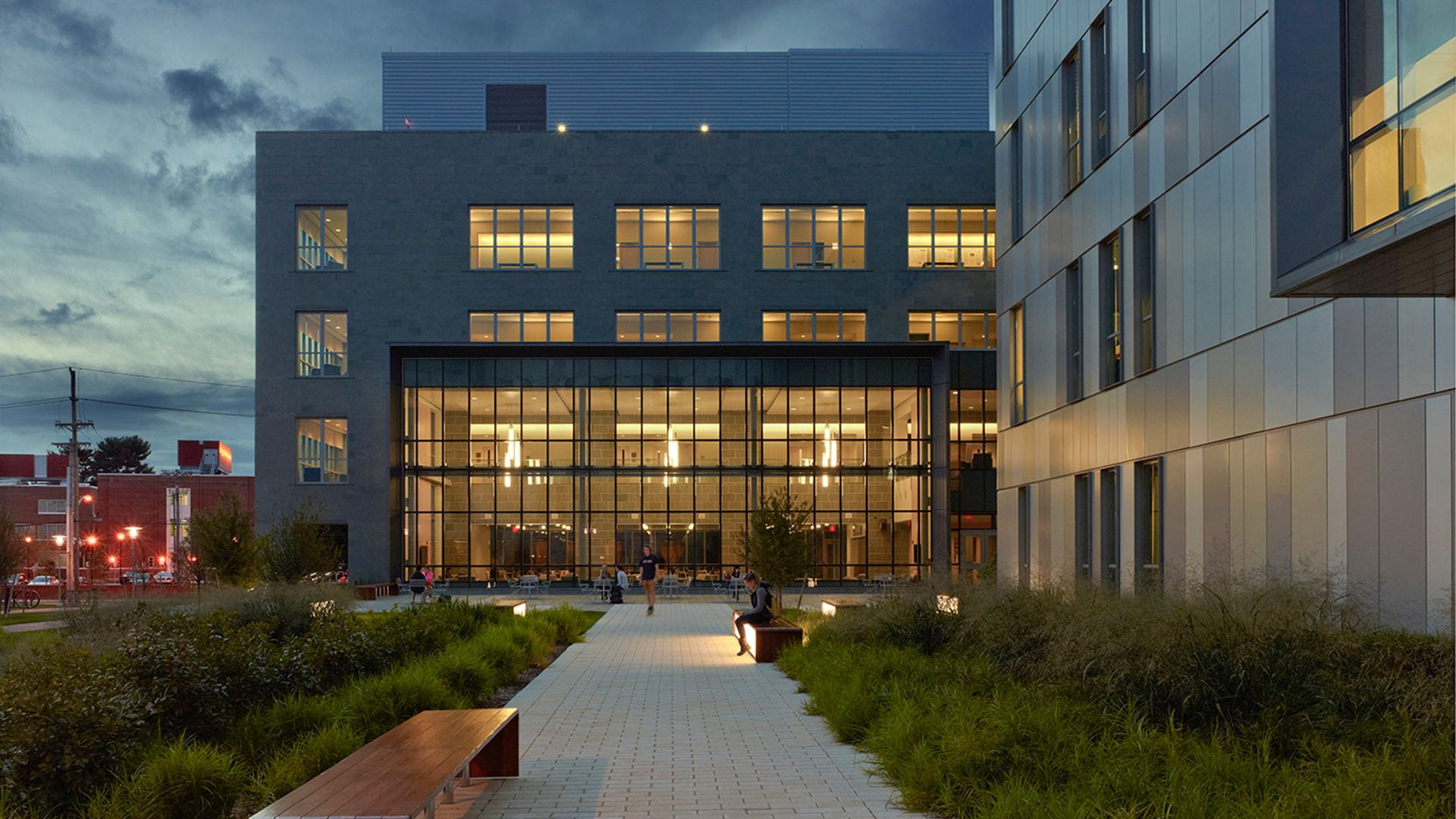On Sunday, March 1, 2020, I attended the highly anticipated Changemakers Conference on campus. A changemaker is defined as someone who has a desire to change something about the world and uses imagination, empathy, and collaboration in the right ways to create that change.
This is the first year that a concept of a conference surrounding that idea has come to life. The day was broken down into sessions, some of which were required for everyone to attend together, and some of which we had workshop options to choose from.
I had an amazing time there, developing new skills and networking with other students while I was at it. So, to give you a little glimpse into my day at the conference, I’m going to take you through my itinerary and share some key ideas that I learned at each session I attended!
Check-In & Morning Session: The morning session was held in the Trabant Multipurpose Rooms with all conference attendees. Susan Luchey, the Conference Chair, welcomed us, introduced how this conference came together and what she hoped we would take away from it, and really got us in the open and determined mindset that we would need for the workshops.
Opening Keynote with Bryan Terrell Clark: Next up was a phenomenal speech by the one and only Bryan Terrell Clark. Clark is an actor, singer, songwriter, and plays George Washington on a little show called Hamilton on Broadway! He is also the co-founder of an initiative called inDEFINED, through which he teaches others how to use their spheres of influence to work towards eliminating societal labels. In his presentation, Clark talked a lot about his childhood experiences and his parental influences, how those shaped his upbringing, and what he learned from them. Here are some key points that I took away:
- Build up enough passion to fuel the long journey that change takes.
- Talent and execution are not enough to be a leader—you need to believe in yourself.
- Develop a connection with your inner voice: there is guidance within you that ALWAYS leads you to safety and success. Listen to it and strengthen your relationship with it now so that when you need it, you can trust it.
- Master what you manifest: thoughts become things, and you can become a leader if you learn to command your thoughts.
- Purpose is when your gifts and talents meet a need.
- Happiness comes when you become clear on both your passion and your purpose and they both align with one another.
- When you are fighting for change, you cannot pick topics out of a hat. It needs to be connected to you; it needs to make you feel something.
- It’s not always about attacking the big idea—start with your own sphere of influence and begin with the people you know.
- You can be powerful beyond measure if you connect with yourself.
- Do your best to be your authentic self.
Brunch: After that amazing and inspiring speech, we headed to the Trabant Food Court for brunch. There was a great spread, including pancakes, eggs, fruits, and coffee. I attended the conference with some of my residents in Redding, and it was great to reflect on Clark’s words and talk about the sessions we planned to attend over a delicious meal.
Breakout Session 1: The first session I attended was called “Design Your Leadership Like an Entrepreneur.” The workshop was led by Dr. Anthony Middlebrooks, an Associate Professor in Community Organization and Leadership here at UD, along with some of his students. The purpose of this workshop was to teach students how to enhance their performance as a leader by reframing problems as opportunities and embracing the following mindset:
- Leadership is the process of influencing others towards a common goal.
- Entrepreneurship is pursuing the creation, delivery, and capture of values from new ideas.
- The debilitating myth of musical chairs: if there is no room for you, it doesn’t mean you’re out. Bring your own chair to the game, or better yet, start your own table.
- Let go of attachments that are leading you in the opposite direction of where you want to go.
- Reframe problems as opportunities. For instance, instead of seeing a team member as rigid and uncooperative, seeing them instead as organized, assertive, and independent will allow you to seek out ways to work with them.
- Unique value proposition: recognize what unique values you bring and think about how you want to communicate that.
- Think about the resources and aspects of your life that you can better utilize—something you may need could have been right in front of you the whole time!
- Avoid self-sabotaging thoughts and reinforce yourself with positive affirmations.
- Everything you need is already within you.
Afternoon Keynote with Toshia Shaw: Toshia Shaw is a published author, speaker, spiritual life coach, holistic mental health professional, and a survivor of trauma. She is the founder of the Purple W.I.N.G.S. nonprofit organization, which works towards helping and empowering young girls who suffered from drug addiction, sexual trauma, domestic violence, and other traumatic experiences. In her talk, she talked a lot about her personal experiences with trauma, and how it shaped the way that she saw and thought about the world around her. Here are some important things I learned:
- Don’t allow the way a person looks to be a factor in what you think of that individual.
- Transforming means surrendering yourself to a higher purpose. Find out what that is, and then live and walk your truth.
- Sometimes we complain about what needs to be done because we are waiting for someone else to do it. But maybe that someone is you.
- It is not enough to acknowledge what needs to be changed, it is your responsibility to change it.
Breakout Session 2: The second session I attended was called “How to Solve Any Problem,” presented by Nishant Chintala and Garrett Currie, UD students and coaches of the Collegiate Leadership Competition Team. They taught us that problems are usually how to solve the problem, not the problem itself. We learned how to approach any problem with the SOLVE strategy, which is an especially useful method when the solution to an issue is not obvious. We participated in a team activity that involved making 60 paper airplanes at our tables in 6 minutes, which we repeated again at the end of the workshop after learning the SOLVE method. Here it is, outlined below:
- Set Roles: determine necessary roles, distribute strengths, adapt to obstacles.
- Outline the Problem: define problem, set rules, explore potential setbacks, ask questions.
- List Multiple Strategies: brainstorm different paths, utilize relevant experiences.
- Veer Towards Consensus: hear all voices, choose three solid ideas, move forward with top.
- Evaluate the Results: schedule pause points to check progress, develop improved plan.
The take-home message of the presentation was when solving problems, embrace chaos, be open to new ideas, learn from failure, and be fearless. Even though you may find yourself uncomfortable at first, from discomfort comes growth, which is what being a leader is all about.
Dessert & Coffee: I guess now would be an ideal time for my monthly #CoffeeRoast! The food, snacks, and coffee for this event overall was provided generously by UD Catering, so I do feel a little obligated to promote their concessions. I will say that the coffee was decent enough, but not what I would opt for on a daily basis. However, it was FREE, which was unlike the brews I usually order, so this one gets an A+ in my book. In addition to cups of caffeine, Insomnia cookies were present. I indulged in a double chocolate chunk cookie and smuggled a chocolate chip and M&M cookie for later.
Closing Keynote with Nyle DiMarco: Nyle DiMarco is a model, actor, dancer, and an activist for the Deaf. Being Deaf since birth himself, he is known for putting forth major efforts to de-stigmatize disabilities and creating opportunities that are not available for people who are hard of hearing or live with complete Deafness. Through his talk, he spoke about his experiences as the first Deaf contestant on America’s Next Top Model as well as Dancing with the Stars, and how he went on to win both competitions despite the many challenges he faced while in the spotlight. Every day, he works towards using his influence and platform to expand his reach and advocate for language and literacy equality. This was an incredible speech to watch, as DiMarco signed everything he wanted to say while having an interpreter speak his gestures. This is what I learned from him:
- Never let what you might think is a setback stop you from achieving your goals. Instead, find a novel way to let it be your strength.
- There is so much power that comes with not letting what people do and say bother you and truly loving who you are.
- Don’t try to fix something that is not broken: our identities are all we have.
- Come up with your own definition of what it means to be yourself, and let that be the driving factor in your journey.
- Trust that you have the strength to solve your own problems.
Conference Wrap-Up and Call to Action: After the final keynote, we were joined by Susan Luchey once again, who provided us with an action plan that change cannot start without:
- Start with brainstorming what bothers you on your campus, in your community, in the world, and in your personal life.
- Decide which of those problems you are most passionate about, and zero in on how you can realistically create change surrounding it.
- Once you have identified the problem, conduct research surrounding who is responsible for the cause, what conditions contribute to the problem, when the problem originated, why it is important to you, and how it impacts you, your campus, your community, and the world.
- Find out what resources and data you need to develop solutions, who else has or is currently tackling the problem, what has been done already towards this cause, and become and expert on the issue.
- Brainstorm as many possible solutions as you can by moving from general to specific answers, combining ideas with others, breaking down ideas into more detailed pieces, prioritizing, and exercising zero judgement.
- Figure out ways in which you can generate support for your cause. Make goals, develop a strategy, outline tasks, set a timeline, and create an assessment plan to measure your progress and success.
- Implement!
And that wrapped up my day at Changemakers! I was extremely impressed with how well put together this occasion was, and especially with the effort the organizers put towards making this event as welcoming, accessible, and inclusive as possible. It was truly a phenomenal conference, and one that I hope to experience again next year!
Below, I have attached three links, which will take you to previous documented talks given by the keynote speakers from Changemakers that are similar to what they spoke about last Sunday. I encourage you to watch them, and I hope you learn something new that motivates you to inspire positive change yourself!
Bryan Terrell Clark: https://www.youtube.com/watch?v=FXsN5Y0O3TM
Toshia Shaw: https://www.youtube.com/watch?v=duxIbG01HNs
Nyle DiMarco: https://www.youtube.com/watch?v=U_Q7axl4oXY
And in case you would like to check out the conference page to see more about what it was all about and get motivated to attend next year:
Changemakers Conference Homepage: https://sites.udel.edu/usc/change-makers/






